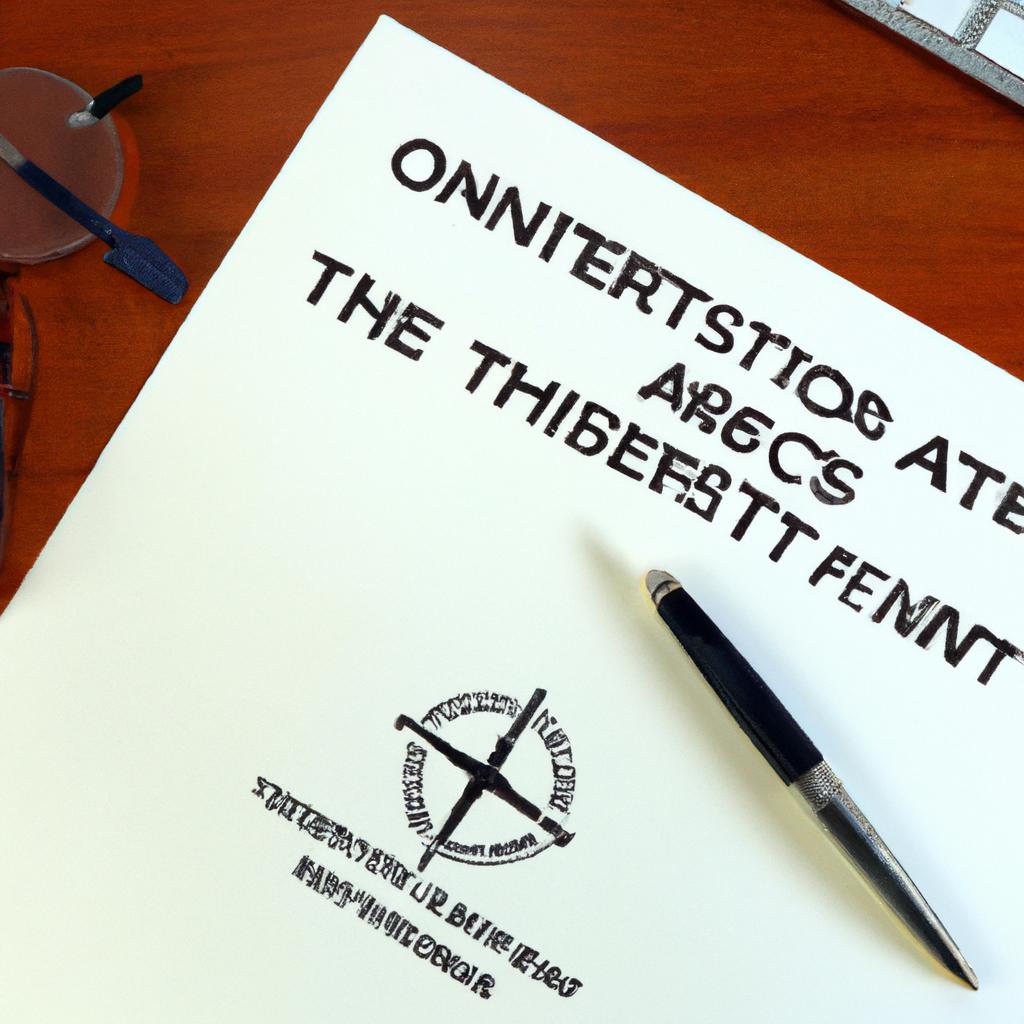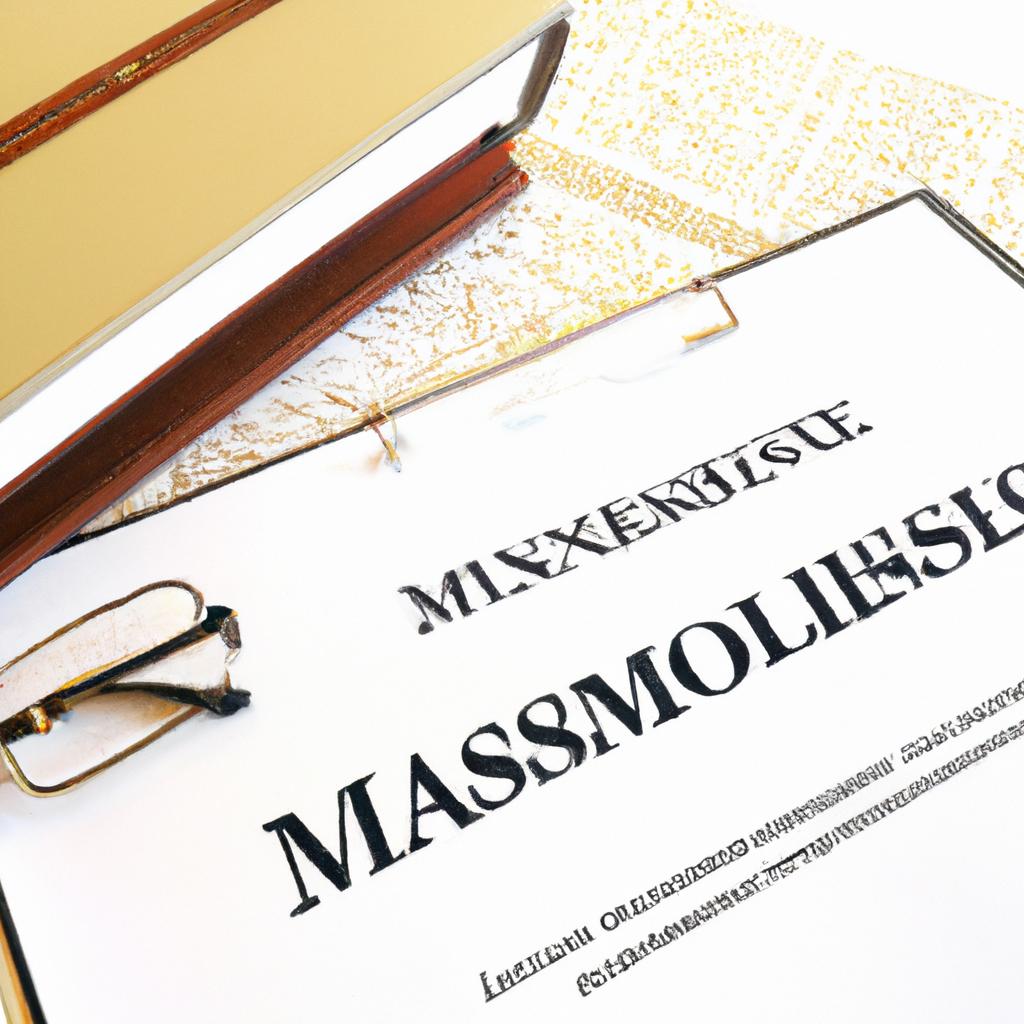In the intricate world of estate planning, navigating the legal landscape becomes even more complex when marriage is added to the equation. As seasoned professionals at Morgan Legal Group, based in New York City, we understand the importance of crafting thorough and customized estate plans for married couples. From discussing the intricacies of joint assets to ensuring the seamless transfer of wealth to future generations, our expertise in estate planning for married individuals is unrivaled. Join us as we delve into the valuable considerations and strategies for married couples in estate planning.
Estate Planning Considerations for Married Couples
When it comes to estate planning for married couples, there are several important considerations to keep in mind. One key aspect to consider is how assets will be distributed upon the passing of one spouse. Creating a comprehensive estate plan can help ensure that your wishes are carried out and that your loved ones are taken care of.
Another important consideration for married couples is choosing the right type of trust to protect your assets. A trust can help minimize estate taxes and provide for your spouse and children in the event of your passing. It’s crucial to work with an experienced attorney to help you navigate the complex world of estate planning and ensure that your assets are protected for future generations.

Navigating Joint Ownership of Assets in Estate Planning
When it comes to if you are married, there are several important considerations to keep in mind. Joint ownership of assets can be a useful tool for estate planning, as it allows for assets to pass directly to the surviving spouse without going through probate. However, it is important to understand the implications of joint ownership and how it can impact your overall estate plan.
One key consideration is the type of joint ownership you choose. There are different forms of joint ownership, including joint tenancy with right of survivorship and tenancy by the entirety. Each form of joint ownership has its own advantages and disadvantages, so it is important to carefully consider which option is best for your individual situation. Additionally, it is important to review and update your estate plan regularly to ensure that it reflects your current wishes and goals. Working with an experienced estate planning attorney can help ensure that your joint ownership arrangements are in line with your overall estate planning goals.

Tax Implications for Married Individuals in Estate Planning
When it comes to estate planning for married individuals, there are several important tax implications to consider. One key factor to keep in mind is the unlimited marital deduction, which allows one spouse to transfer an unlimited amount of assets to the other spouse during their lifetime or upon death without incurring gift or estate taxes. This deduction can be a valuable tool in reducing estate tax liability for married couples.
Additionally, married individuals have the option to take advantage of portability, which allows the surviving spouse to use any remaining portion of the deceased spouse’s estate tax exemption. This can effectively double the amount of assets that can be passed on free of estate taxes. It is important for married couples to carefully review their estate plans and take advantage of these and other tax-saving strategies to ensure that their assets are protected and their loved ones are provided for.

Maximizing Estate Planning Benefits through Spousal Trusts
One effective strategy for maximizing estate planning benefits when you are married is to establish spousal trusts. Spousal trusts are a valuable tool that can help protect your assets, provide for your spouse, and minimize estate taxes. By setting up a spousal trust as part of your estate plan, you can ensure that your spouse is taken care of financially after your passing and that your assets are distributed according to your wishes.
- Spousal trusts can provide your spouse with income for life
- Spousal trusts can help minimize estate taxes
- Spousal trusts can protect assets from creditors
When setting up a spousal trust, it is important to work with an experienced estate planning attorney who can help you navigate the complex legal requirements and ensure that your trust is drafted correctly. At Morgan Legal Group, our team of experienced attorneys can help you create a spousal trust that meets your specific needs and goals, providing you with peace of mind knowing that your loved ones will be taken care of in the future.
Q&A
Q: Does being married impact my estate planning?
A: Yes, being married can greatly impact your estate planning decisions.
Q: What happens to my assets if I die without a will?
A: If you die without a will, your assets will likely pass to your spouse under intestacy laws.
Q: Can I leave my assets to someone other than my spouse?
A: Yes, you can leave your assets to anyone you choose, including someone other than your spouse.
Q: Are there any tax benefits to estate planning as a married couple?
A: Yes, there are tax benefits available to married couples through estate planning, such as the marital deduction and portability.
Q: What is a spousal elective share?
A: A spousal elective share is a portion of the deceased spouse’s estate that the surviving spouse is entitled to receive, even if not included in the will.
Q: How can I ensure that my spouse is taken care of after my death?
A: You can ensure your spouse is taken care of by creating a will, trust, or other estate planning documents that provide for their financial security.
To Wrap It Up
In conclusion, estate planning is a crucial step for married couples to ensure their assets are properly protected and distributed. By working together to create a comprehensive plan, you can provide peace of mind for both you and your loved ones. Remember, it’s never too early to start planning for the future, so don’t hesitate to seek professional guidance and take the necessary steps to secure your legacy. Thank you for reading and best of luck with your estate planning journey!
 When it comes to estate planning, many couples are unsure of where to start. It can be a daunting task, but one that is essential for securing your family’s financial future. If you are married, estate planning takes on even more significance as decisions must be made jointly and considerations must be made for both partners. In this guide, we will discuss the key aspects of estate planning that couples need to be aware of and offer valuable tips for ensuring your assets are protected for your spouse and future generations.
When it comes to estate planning, many couples are unsure of where to start. It can be a daunting task, but one that is essential for securing your family’s financial future. If you are married, estate planning takes on even more significance as decisions must be made jointly and considerations must be made for both partners. In this guide, we will discuss the key aspects of estate planning that couples need to be aware of and offer valuable tips for ensuring your assets are protected for your spouse and future generations.
Why is Estate Planning Important for Married Couples?
Estate planning is the process of creating a plan for the distribution of your assets in the event of your death or incapacity. It ensures that your loved ones are taken care of and your assets are distributed according to your wishes. For married couples, estate planning is especially crucial as it allows you to make joint decisions and protects your partner’s rights and interests. Without a proper estate plan in place, your spouse may not have control over the distribution of your assets and may face legal and financial complications.
Estate Planning Steps for Married Couples
1. Create a Will
A will is a legal document that outlines how you want your assets to be distributed after your death. It also allows you to appoint a guardian for your minor children. As a married couple, it is important to have individual wills to ensure your assets are distributed according to your wishes. By having a will, you can also name your spouse as the executor, giving them the authority to manage your estate and carry out your wishes.
2. Establish a Trust
A trust is a legal arrangement that enables you to transfer assets to a trustee for the benefit of your spouse, children, or other beneficiaries. One of the main advantages of a trust is that it can protect your assets from creditors, lawsuits, and other potential threats. As a married couple, you can establish a joint trust, which allows both partners to control and manage the assets jointly. This ensures that your assets are protected and used for the benefit of your loved ones.
3. Designate Beneficiaries
In addition to a will, you should also designate beneficiaries for your retirement accounts, life insurance policies, and other assets. This allows your spouse to receive the assets directly without going through the probate process. It is important to review and update your beneficiaries regularly, especially after major life events such as marriage, divorce, or the birth of a child.
4. Appoint Power of Attorney
Power of attorney (POA) is a legal document that gives someone else the authority to make financial and legal decisions on your behalf. You and your spouse can appoint each other as financial POAs, allowing you to act on each other’s behalf in the event of incapacity. This ensures that your spouse can manage your financial affairs if you are unable to do so.
5. Consider Estate and Gift Taxes
Estate taxes are taxes that are imposed on the transfer of your assets after your death. However, as a married couple, you can take advantage of the marital deduction, which allows you to transfer an unlimited amount of assets to your spouse without incurring estate taxes. Additionally, you and your spouse can also make annual tax-free gifts to each other, reducing the value of your estate and avoiding estate taxes in the long run.
6. Review and Update Regularly
Estate planning is not a one-time task, and it is essential to review and update your plan regularly. Changes in laws, family situations, and assets should all be considered when updating your estate plan. This ensures that your plan continues to reflect your wishes and provides protection for your spouse.
Benefits of Estate Planning for Married Couples
1. Protects Your Spouse’s Rights and Interests
Estate planning allows married couples to make joint decisions, ensuring that both partners’ rights and interests are protected. It provides peace of mind knowing that your spouse will be taken care of and that your assets will be distributed according to your wishes.
2. Reduces Conflict and Legal Complications
In the absence of a clear estate plan, there is a higher risk of conflict and legal complications between family members. Estate planning minimizes the chances of disputes and helps to avoid potential legal battles, which can be emotionally and financially draining for your loved ones.
3. Offers Financial Security
Estate planning enables married couples to create a financial safety net for their partners and future generations. By establishing trusts, designating beneficiaries, and utilizing other estate planning tools, you can ensure that your loved ones have financial security even in your absence.
4. Provides Tax Benefits
Proper estate planning can help to reduce or even eliminate estate and gift taxes, which can have a significant impact on your assets. As a married couple, you can take advantage of several tax benefits and ensure that your assets are preserved for your loved ones’ future.
Practical Tips for Married Couples in Estate Planning
1. Start Early
Estate planning is not something that should be put off until retirement. It is crucial to start the process early and review and update regularly to ensure your plan reflects your current wishes and needs.
2. Be Transparent and Communicative
It is essential to have open and honest communication with your spouse when it comes to estate planning decisions. Talk about your wishes, goals, and concerns to avoid any conflicts or confusion in the future.
3. Seek Professional Help
Estate planning can be complex, and it is always best to seek professional help. An experienced estate planning attorney can guide you through the process and ensure that your plan is legally sound and tailored to your specific needs and goals.
In conclusion, estate planning is a crucial aspect of financial planning for married couples. It not only protects your assets but also ensures that your loved ones are taken care of and your wishes are carried out. By following the steps and tips outlined in this guide, you can create a comprehensive estate plan that provides peace of mind for you and your spouse. Remember to review and update your plan regularly to ensure it remains relevant and effective.

